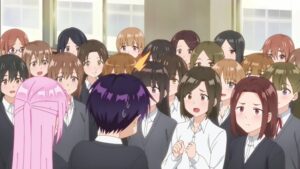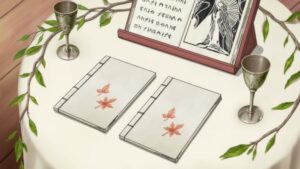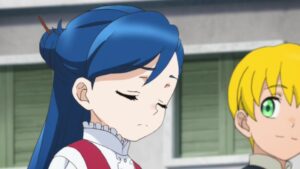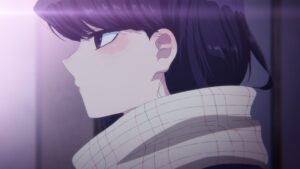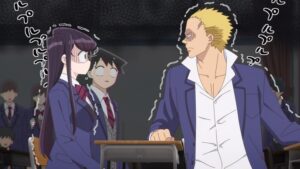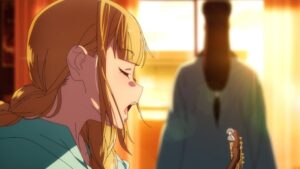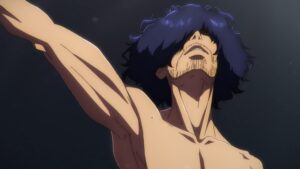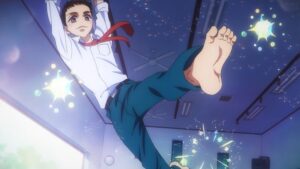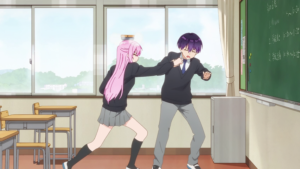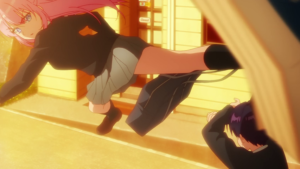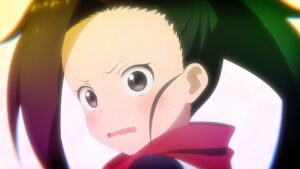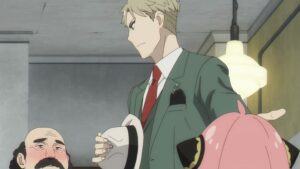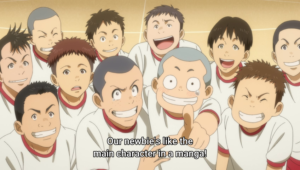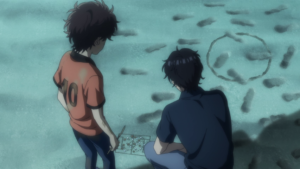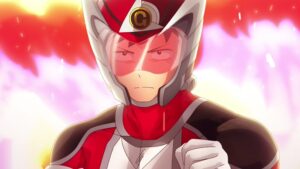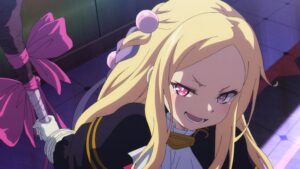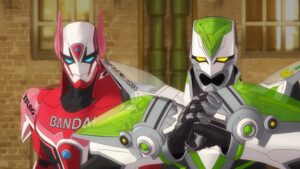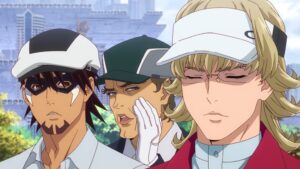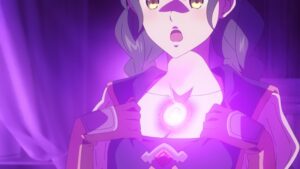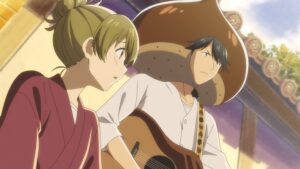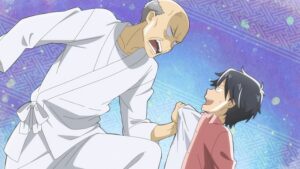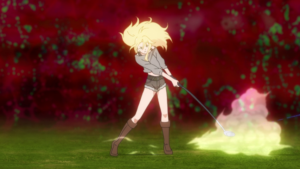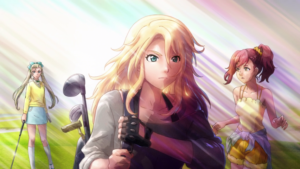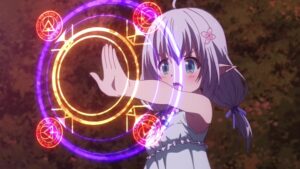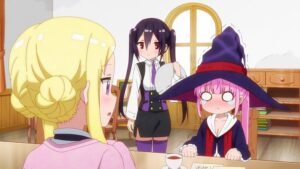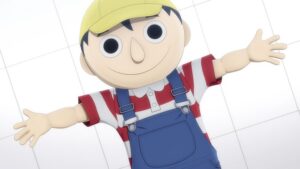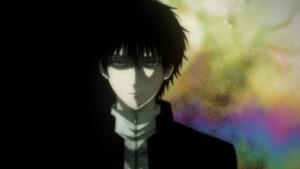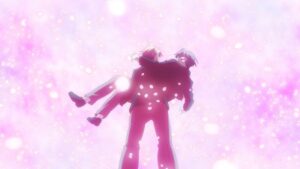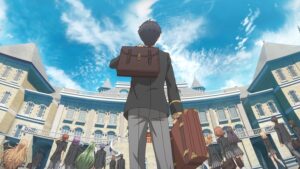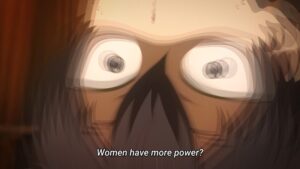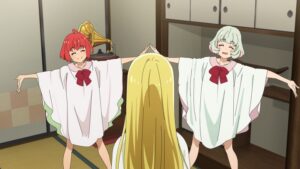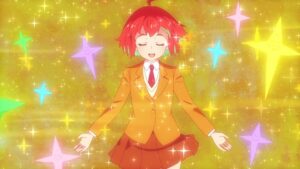Gunjou no Fanfare
Short Synopsis: A former teen idol has a stressful first day at horse jockey school.
Mario: You know, I was pretty much on board with this first episode up until the very last 20 seconds. Are they going full BL romance now? Isn’t it about horse riding? There’s a certain charm about Gunjou no Fanfare amidst its uneven production values and storytelling that I both like and shrug at simultaneously. On the one hand, the production is below-average with underwhelming CG horse-animation and poor lighting. But then, it picks itself up with its steady direction that produces some memorable shots. The same goes for its writing – I like the fact that I already can tell most of the main cast apart because they have different mannerisms and different approaches to riding. But then, the show slaps itself in the face and reveals that our main duo haven’t even ridden a horse before. So why did this prestigious school accept them in the first place? Is this “chasing the lost horses” scene just pure recklessness by an overconfident pair of brats? Ultimately, I prefer uneven products like this over safe-but-forgettable flicks anytime, so I might stick around for a few more episodes.
Potential: 30%
Wooper: I wrote this show off before the season started, but it showed me something here – and I don’t just mean bad CG and awkward lighting. The overall direction of this first episode was a cut above what I expected, moving from protagonist Yuu to the horse racing instructors to the other incoming students to the media with surprising sureness. Emotions like Yuu’s frustration at being hounded by the press and his easygoing instructor’s enthusiasm at meeting a new crop of jockeys were clearly conveyed, and there was a whiff of interpersonal conflict even before the third act shake-up of two horses escaping their stable. Unfortunately, that shake-up was what sunk this episode for me, as it escalated into a scenario that the show had no way of resolving without relying on magic. Yuu’s future best friend showed up in the nick of time, mounted one of the horses, and expertly caught up to the other animal after a high speed chase (despite never having ridden one before). Then Yuu, riding double, grabbed the reins of the spooked horse and somehow brought it to a standstill (off camera, of course). The more you think about it, the less sense it makes, but at least it’s only nonsense plotting and some sketchy compositing that plague Gunjou no Fanfare – it might be viable viewing if you’re not concerned with accuracy.
Potential: 15%
Trapped in a Dating Sim: The World of Otome Games Is Tough for Mobs
Short Synopsis: An ill-tempered gamer dies and finds himself reincarnated in a matriarchal dating simulator.
Wooper: There was never a point in this premiere where I entertained the idea of tuning in for another week, but it did start on an amusing note, with the main character delivering a resentful and varied monologue. Topics included the superficiality of male love interests in otome games, his bitterness toward his sister, the backwards nature of matriarchal societies, and his thoughts on poor game design. This was among the most aggressive targeting of the incel demographic I’d ever seen, so I was perversely fascinated to see how the show would follow it up. After the kid’s death and reincarnation, though, the episode flatlined. I have a fundamental issue with series where the “hero” uses his prior knowledge of a video game to advance through the story, because it’s not rewarding to see someone succeed when they already have the answers. Similarly, Otome Game Sekai’s protagonist jumps from location to location without a speck of drama, and no number of ship-destroying whirlwinds or guardian robots can mask that problem. The episode is careful to point out that he’s not following the game’s central storyline, but he’s following a script nonetheless – the script of an anime that delivers progress on a silver platter, because that’s what its game world (and its audience) demand.
Potential: 0%
Mario: This is one of those isekais that “intends” to recontextualize the genre by pointing out the tropes, but at the same time embrace the formula shamelessly. Unlike Wooper, I don’t find any enjoyment from a dude who gives resentment remarks to the game he’s playing (why play at all, then, just go Youtube), and when he is reincarnated to that world, all he does is to level up his power to stand out. It’s the exact same premise as countless isekais we’ve seen before. To be fair, I’m kind of amused by its settings that is a mixture between fantasy and sci-fi (and for my money, there is some hidden secret behind it), but otherwise the show is harmless: enjoyable to watch (I don’t regret watching it) but leaves nothing of impact.
Potential: 20%
Healer Girl
Short Synopsis: Three healers-in-training prepare to treat patients using the medicinal properties of music.
Wooper: Watching Healer Girl brought a question to my mind: has there ever been a full-blown anime musical before? We’ve had dozens of music-themed shows, including some where conflict is resolved through musical performance (Revue Starlight chief among them), but has there ever been an anime where the plot and characterization are delivered mainly through song? Healer Girl doesn’t fit the bill, but there’s a point in its premiere where our leading ladies break from their conversation to sing their reasons for becoming healers, which charmed the pants off me. There are more ordinary performances as well (as you’d expect from a show where music has medicinal powers), complete with sparkly backgrounds that represent the transportive power of song. It’s a testament to the show’s pleasant tone that these scenes didn’t yank me right out of the episode, because although they were visually blunt, I liked the characters well enough to hope for their success in those moments. Healer Girl does a decent job of justifying its premise, too, briefly explaining this new branch of medicine with training scenes and demonstrations of musical rehab. I have to imagine that the further the show progresses, the harder it’ll be to take its story seriously, but its fun, optimistic atmosphere has convinced me to check in with it again at some point.
Potential: 35%
Lenlo: The worst thing I have to say about this show is that I, personally, am not a fan of musicals nor Cute Girls Doing Cute Things. When I take away those two criticisms, things that are intrinsic to the show I might add, I only really have nice things to say. Visually it doesn’t look half bad, with the musical bits especially earning their place. Meanwhile the VA work pretty solid. Unlike a lot of singing based music shows with big set piece concerts repeating the same song, Healer Girl requires unique, new singing for every scene it’s in. The variation in style of singing is really appealing as well. My main concern is that it’s going to get dull, but I have that concern for every CGDCT show. It’s intrinsic to the genre and by now you already know if you like it or not. So if what you want is some wholesome singing and dancing with cute girls, Healer Girl has you covered. I think you will get exactly what you want from it. Sadly for me, what it’s delivering isn’t something I care about.
Potential: 50%

